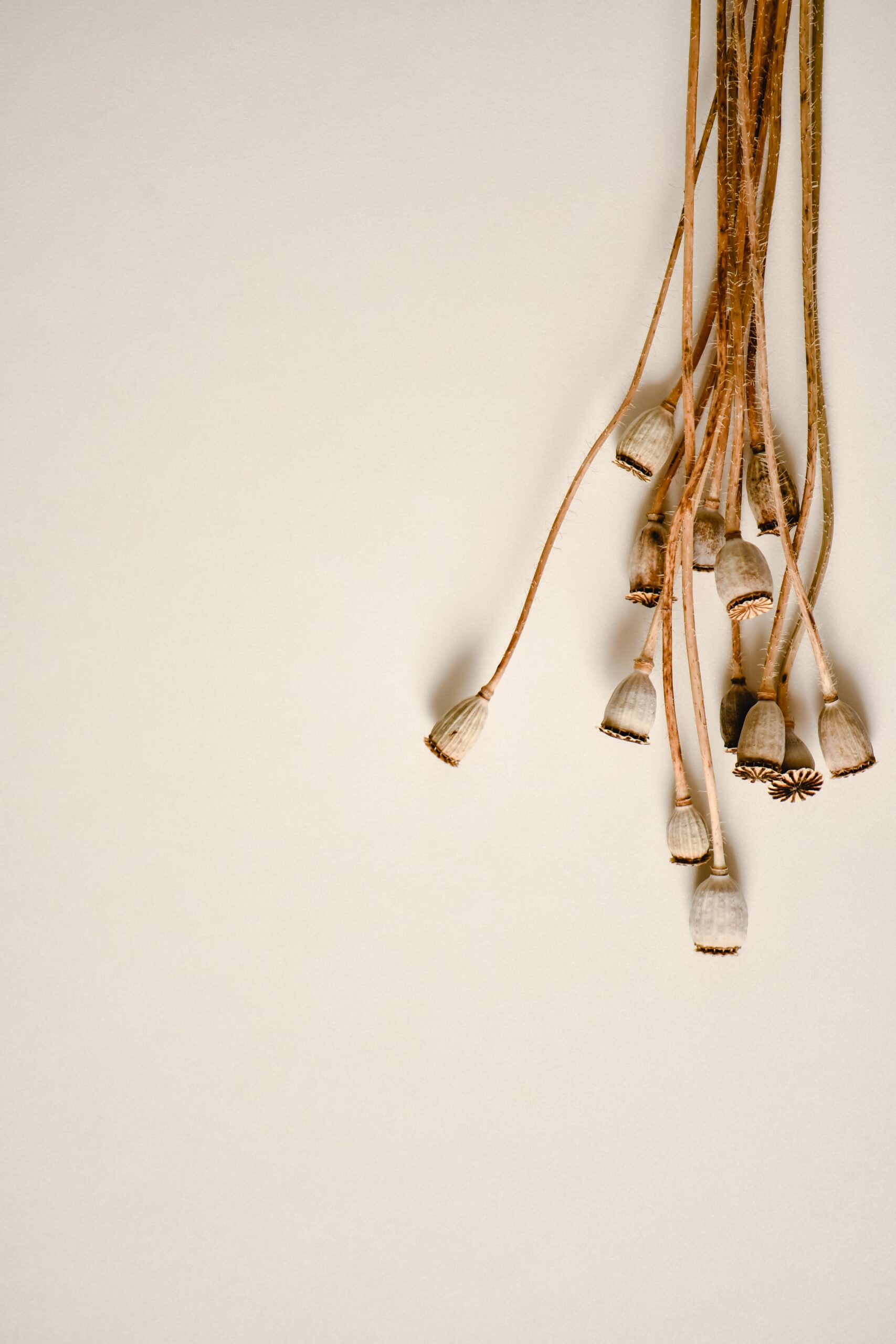Dried poppy pods, prized for their unique beauty and versatility in crafts and decoration, have gained popularity among buyers and sellers alike. In this article, we will explore the ethical and legal considerations associated with buying and selling dried poppy pods.
Poppy pods are the seed pods of the opium poppy plant, and are typically used in flower arrangements or as a decorative element in home décor. This raises ethical and legal considerations for those who buy and sell dried poppy pods.
From an ethical standpoint, it is important to consider the potential consequences of selling poppy pods. This can lead to serious harm to individuals and communities, as opium is a highly addictive and dangerous drug. As such, it is important for those who sell poppy pods to prioritize ethical practices and ensure that they are not contributing to the illegal drug trade.
On the legal side, the sale of dried poppy pods is heavily regulated in the United States. The Drug Enforcement Administration (DEA) closely monitors the sale of poppy pods, and individuals who are found to be selling them without proper licensing and permits may face serious legal consequences. It is important for those who wish to sell poppy pods to obtain the proper licensing and permits from the DEA, and to research and abide by all state and local laws and regulations surrounding the sale of these products.
Furthermore, it is important to note that even though poppy pods can be legally purchased for decorative or ornamental purposes, they must not be used for any illegal purposes, such as the extraction of opium. The DEA has specific regulations in place to prevent the diversion of poppy pods for illegal use, and individuals who fail to abide by these regulations may face criminal charges and fines.
Understanding Dried Poppy Pods
The Appeal of Dried Poppy Pods
Dried poppy pods, obtained from the opium poppy plant (Papaver somniferum), are known for their intriguing shapes and earthy hues. They are commonly used in crafting, floral arrangements, and home decor to add a natural and rustic touch.
Dual Nature of the Opium Poppy Plant
The opium poppy plant has a dual nature. While it is celebrated for its seeds and ornamental pods, it also contains latex that can be processed into opioids like morphine and codeine, leading to its classification as a controlled substance.
Ethical Considerations
Responsible Sourcing
Buyers and sellers of dried poppy pods should prioritize responsible sourcing. This means obtaining pods from suppliers who adhere to ethical and legal cultivation practices. Supporting ethical sourcing contributes to the sustainability and integrity of the industry.
Conservation Efforts
It’s important to consider the impact of poppy pod harvesting on the environment. Buyers should seek out sellers who are committed to conservation and sustainable harvesting methods.
Misuse and Public Awareness
Buyers and sellers should be aware of the potential misuse of dried poppy pods. Educating the public about the responsible and lawful use of these products is crucial in preventing misuse and its associated risks.
Legal Considerations
Federal Regulations
The Controlled Substances Act (CSA)
In the United States, the primary federal law governing the legality of opium poppy pods is the Controlled Substances Act (CSA) of 1970. The CSA classifies controlled substances into five schedules, with Schedule I being the most restrictive.
Schedule II Classification
Opium poppy and its derivatives, including opium and heroin, are classified as Schedule II controlled substances under the CSA. This strict classification means that the cultivation, possession, sale, and distribution of opium poppy pods, regardless of their intended use, are subject to federal regulations and penalties.
Exceptions for Decorative Use
Poppy Pod Varieties
Federal regulations in the United States make exceptions for certain poppy pod varieties with negligible morphine content. These pods, typically used for decorative or ornamental purposes, are not subject to the same stringent controls as those with higher morphine levels.
Compliance and Oversight
Sellers of poppy pods for decorative use must ensure that their products meet the criteria set by federal regulations. Compliance with these regulations is essential to avoid legal consequences.
State and Local Variations
It’s important to note that state and local laws regarding the sale and possession of poppy pods can vary widely. Some states may have stricter regulations, while others may have more permissive rules. Sellers and buyers should be aware of the specific laws in their area to avoid potential legal issues.
Legal Risks and Liability
Federal Penalties
Individuals and businesses involved in the sale and distribution of opium poppy pods should be aware of the federal penalties for violating the CSA. These penalties can include fines, asset forfeiture, and imprisonment.
State and Local Penalties
In addition to federal penalties, individuals and businesses may face state and local penalties for violating poppy pod regulations. The severity of these penalties can vary depending on the jurisdiction.
Liability
Sellers of poppy pods should be cautious about potential liability if their products are misused. While they may sell the pods for decorative purposes, buyers may attempt to extract opium or other substances from them, leading to legal and liability issues.
Responsible Practices
Responsible Selling
Sellers of dried poppy pods should prioritize responsible selling practices. This includes verifying the legality of the pods they offer for sale and educating their customers about the lawful and responsible use of these products.
Responsible Buying
They should be aware of the legal regulations governing these products in their area and seek out reputable sellers who comply with these regulations.
Public Awareness
Raising public awareness about the legal status and potential risks associated with poppy pods is essential. Educating consumers about the lawful and responsible use of these products can help prevent misuse and legal issues.
Conclusion
The buying and selling of dried poppy pod offer a creative and decorative outlet for individuals and businesses.
Federal regulations in the United States classify opium poppy pods as controlled substances, which means that their cultivation, possession, sale, and distribution are subject to strict regulations and penalties. Sellers and buyers must be aware of these regulations to avoid legal consequences



